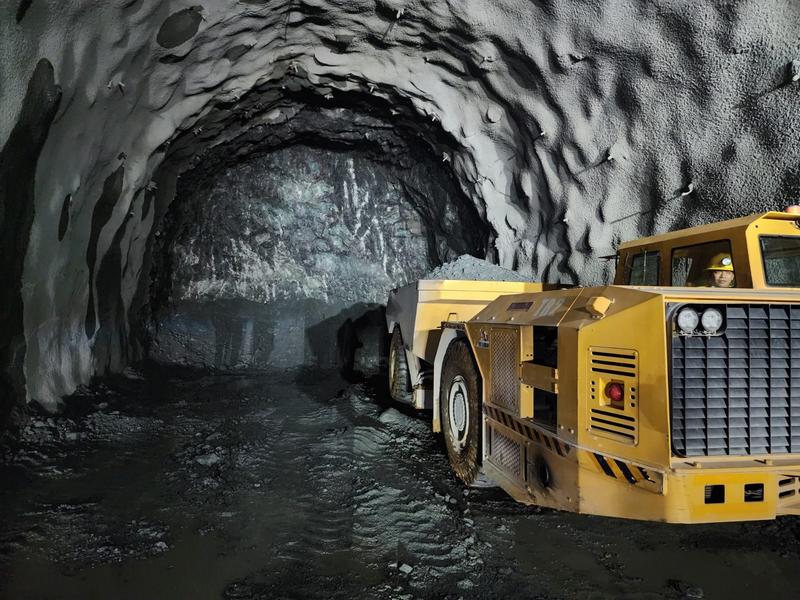By Engr. Suprabhat Sarkar, COO, Teknomin Construction Ltd. India Partner of Paramina Earth Technologies, Inc.
As the mining industry prioritizes equipment reliability, tribology, maintenance practices, and oil recycling innovations are essential for ensuring sustainable operations and meeting future demands.
In Part 1 of this article (see PRJ Issue 1 2025), we discussed the practices and tools by which we can ensure equipment reliability. We delve further into these strategies in Part 2.
Al-Driven Enhancements in Reliability and Maintenance
The integration of artificial intelligence (Al) has brought transformative changes to mining equipment reliability, safety, and cost-efficiency. Al-powered predictive maintenance utilizes data from embedded sensors to monitor equipment performance in real time, detecting early signs of wear, temperature fluctuations, abnormal vibrations, and other indicators of potential failure.
By detecting issues before they escalate, predictive maintenance helps to minimize unplanned downtime, reduce repair costs, and extend equipment life. For instance, Al can assess optimal lubrication schedules, analyze operational patterns, and adapt maintenance strategies based on historical performance data. This capability not only enhances equipment life but also reduces waste and optimizes resource use.
Additionally, Al-driven automation of safety features improves operational security. Real-time hazard detection, autonomous machinery control, and instant operator alerts have significantly reduced on-site risks. As Al continues to evolve, it is driving a new era in mining, where reliability, safety, and sustainability converge to create efficient, streamlined operations.
Recycling and Reusing Oils
Oil recycling is a critical yet often overlooked component of mining maintenance. Oils and lubricants are among the primary consumables in mining equipment, and their disposal contributes to environmental degradation and increases operational costs. By recycling used oils through refining and reprocessing, companies can extend the life of these materials. reducing both expenses and environmental impact.
Recycling offers substantial benefits, including cost savings and environmental sustainability. For example, reprocessed oils can be used multiple times without compromising performance, making oil recycling an effective strategy for reducing consumption and waste. The transition to reusing oils aligns with sustainable practices and reflects the industry's commitment to minimizing its ecological footprint.
Why Reliability is Vital in the Mining Industry
Reliable equipment ensures predictable performance, minimizes hazardous conditions, and provides peace of mind. Key benefits of reliable mining equipment include:
- Safety: Reliable machines are designed to lower accident rates and mitigate risks, contributing to a safer work environment.
- Marketability: Reliable equipment enables operators to meet low-cost per ton goals, enhancing competitiveness.
- Employee Morale: Safe, effective equipment boosts morale by facilitating smoother and safer workflows
- Productivity: Reduced downtime. efficient servicing, and fewer part replacements support continuous, high output operations
The Importance of Efficient Mining Equipment
Efficient mining equipment is vital for ensuring safety, controlling costs, and maintaining productivity. Properly maintained machinery minimizes breakdowns, reduces repair costs, and ensures uninterrupted operations. Efficiency in mining equipment yields:
- Enhanced Safety: Efficient machines reduce risks associated with stalling, worn brakes, fires, and rollovers, protecting workers.
- Cost Savings: Preventive maintenance reduces the need for costly component replacements and helps achieve daily production goals.
- Productivity: Smoothly operating brakes, wheels, tracks, and other components enable faster, more consistent completion of tasks.
Evaluating equipment efficiency through meticulous records of cycle time, maintenance, accidents, part replacements, and fuel costs allows for trend analysis and operational improvements.

Strategies to Improve Mining Productivity
- Maintain a Strong Team: A skilled team is crucial for productivity. Training programs, employee feedback, cross-training, and health and safety prioritization foster a collaborative, improvement- focused environment.
- Optimize Time and Materials: Efficient resource management, including waste reduction and automated processes, supports profitability and competitiveness. For example, reducing electricity consumption, managing resources efficiently, and repurposing materials contribute to optimized, sustainable workflow.
- Effective Equipment Management: An effective equipment management plan includes regular inspections, preventive maintenance, fuel management, and energy reduction. An established plan ensures that each machine's needs are met, minimizing downtime and extending the life of costly machinery
The Consequences of Unreliable Mining Equipment
Unreliable machinery leads to delays, reduced output quality, safety risks, and increased wear on components. Major drawbacks include:
- Extended work delivery times and compromised quality.
- Higher safety risks for operators and helpers
- Increased wear and tear, resulting in higher maintenance costs.
- Premature component failures, affecting overall productivity.
- Increased lubricant consumption, driving up operational costs.
Conclusion
The advancements in tribology, rigorous maintenance, and oil recycling are reshaping the reliability of mining equipment. These strategies not only enhance equipment longevity but also contribute to safer, more efficient, and eco-friendly mining operations. The mining industry's future lies in continued investment in technology and sustainable practices, ensuring it remains viable, responsible, and capable of meeting evolving global demands.
ABOUT THE AUTHOR
Mr. Suprabhat Sarkar is the Chief Operating Officer of Teknomin Construction Ltd. in India. A mining engineer with over 22 years of experience, he specializes in high-speed mine development, production and international operations across coal, zinc, lead, silver, gold, and copper mining.
Mr. Sarkar holds an MBA (Finance), First-Class Mine Manager Certificates (Metal) in India and Australia, a Diploma (Management) - Australia and a Second-Class Mine Manager Certificate (Coal). Renowned for leadership, technological innovation, and global expertise, he has driven transformative projects at Teknomin Construction Limited and beyond.







